Create Trust By Being Accurate and Thoughtful
Journalism, as I studied it years ago, was based on a stringent practice of checking facts, eliminating assumptions, and reporting what is. As students we were admonished to keep our opinions to ourselves until such time as we became experts in some field. At that point, we were told, we might have a chance to write a decent Op-Ed piece.
Proofreading was a skill we learned, too. Errors in spelling, grammar, and punctuation were sources of keen embarrassment for credible, respectable journalists. Our reputations were important. Standards were high, enforcement was strict, and we became vigilant in our writing.
To say that these standards have been relaxed would be to state the sad and sorry obvious. And it’s true far beyond the realm of journalism.
I listen to a lot of conversation in the course of a day and I’m fascinated by how much of what is said is misleading, inaccurate, or just plain wrong. I see a lot of behavior too, that although well intentioned, misses the mark of effectiveness. In our rush to say or do something, we become sloppy. Unfortunately, that’s not as benign as it used to be. Where inaccuracy runs unchecked, assumptions displace facts, and experts become so by virtue of successful marketing campaigns, the natural by-products are confusion, mistrust, and fear.
Add to this the fact that we live in a world that values rapid response. A witty rejoinder, quick decision, immediate action, and swift judgment inspire high-fives. But sometimes the witty rejoinder elicits rage; the quick decision shuts down more attractive options; immediate action worsens a problem; and swift judgment turns out to be wrong. What then? We keep on truckin,’ certain that we can fix whatever needs fixing along the way.
It’s easy to see how messed up things can get—and stay—and how seemingly little things can escalate to major crises. Look around the world; there are countless examples.
Here I go with the discipline plea again. Here I go with the reminder that we teach others by what we say and do. We need to re-program ourselves to get it right before we send it out. For starters, this means asking questions instead of making assumptions, getting facts before passing along stories, and refusing to spread rumors of any kind. Yes, it’s a lot harder than living in the moment and leaving unintended consequences for another day. But when we become accurate in our speech, intentional in our actions, and thoughtful in advance of both, we help create trust. Trust promotes safety; safety enables learning; learning bolsters happiness.
Categories: Leadership